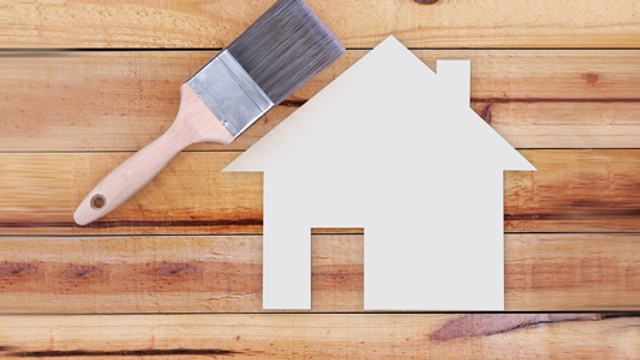Buying a house that needs some work can be a great way to make it your own and also add value. Even if your home is ready to move into, it’s still nice to put your own stamp on it with some improvements.
But home projects don’t always go to plan. Costs can spiral if problems crop up – like dodgy electrics, surprise structural issues, or changes to your design. It’s no wonder many jobs end up half-finished.
In fact, a survey done by Houzz found that 12% of homeowners have had to delay or cancel home improvement projects due to rising costs and financial pressures.
What to do if you’ve run out of money mid-project
Running out of cash halfway through a job can feel like a disaster – especially if you’re left with a mess or unsafe spaces. But don’t panic. Start by making a list of everything that still needs doing. Work out what’s urgent and what can wait.
For example, you might be able to live with unfinished tiling or unpainted walls in the kitchen. But if you’ve got no cooker, plumbing, or electrics – you’ll need to fix that fast.
Ways to fund unfinished work
Once you’ve made a new budget, you can think about how you’re going to pay for the rest. If your savings have run out, here are some options:
Credit card
A credit card could help cover the last bits of work. If you use one, try to pay it off in full each month to avoid paying interest. If that’s tricky, look for a card with 0% interest on purchases – so you can spread the cost of your home improvements.
✅ Top tip: Set up a Direct Debit for at least the minimum payment, so you don’t miss it.
💳 Extra protection: If you pay for anything costing between £100 and £30,000 on your credit card, you’ll be covered by Section 75 of the Consumer Credit Act. This means if the job isn’t finished or something goes wrong, you could get your money back from the credit card company.
Homeowner loan
If you need a bigger chunk of money, a homeowner loan might be an option. You borrow against your home and repay it over time.
❗ Warning: Your home is at risk if you don’t keep up with payments. Think carefully before taking this route – especially if money is already tight.
How to avoid running out of cash next time
Planning is key to avoiding money troubles with future projects. Here are some tips:
- Speak to a builder, architect, or project manager early on. Yes, they cost more – but they can help you budget properly.
- Make a full list of everything you’ll need, including materials and labour.
- Plan ahead! It’s worth knowing that UK homeowners spend an average of £14,000 on home renovation projects – with kitchens and bathrooms being the most common upgrades. That’s a big outlay, so it’s important to plan carefully.
- Always set aside some extra cash – costs can change, and surprises do happen. Prices for materials have started to settle after a few years of sharp rises. Having a safety net will give you breathing space if things run over budget.
- Don’t forget about hidden costs like skips, tool hire, or planning permission fees.
Setting a realistic budget and getting professional advice
Before diving into any home improvement project, it’s crucial to set a realistic budget. Speaking to a professional early on can give you a clearer idea of what to expect. While they may cost more upfront, their expertise can help you avoid surprises and ensure your budget covers everything you need.
Include all costs upfront, such as materials, labour, and permits. Don’t forget hidden expenses like skips, tool hire, or planning permission fees. A well-planned budget can help prevent future financial strain, ensuring you’re prepared for the unexpected.
✅ Tip: If you're unsure about your budget, get multiple quotes from tradespeople and suppliers. This will give you a better sense of what's realistic for your project and help you avoid any unpleasant price hikes mid-way through.
Fiona is a personal finance writer with over 7 years’ experience writing for a broad range of industries before joining Ocean in 2021. She uses her wealth of experience to turn the overwhelming aspects of finance into articles that are easy to understand.
![Email icon]()
Become a money maestro!
Sign up for tips on how to improve your credit score, offers and deals to help you save money, exclusive competitions and exciting products!
Find this useful? Share it with others!









